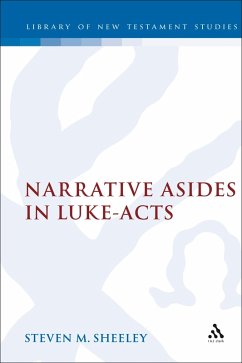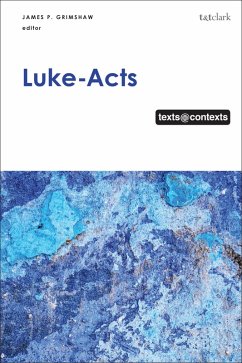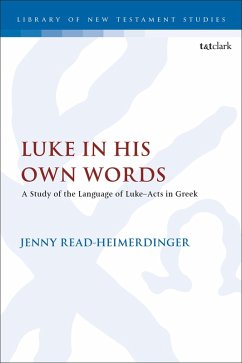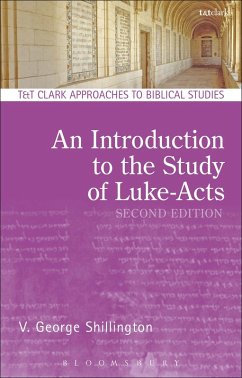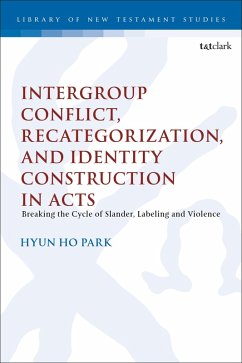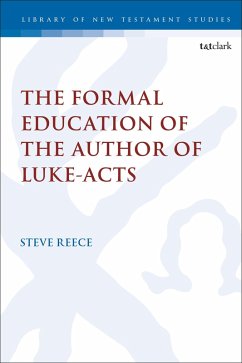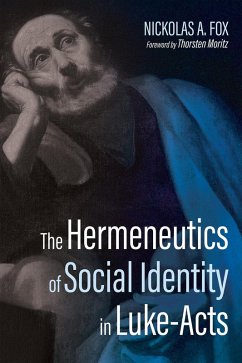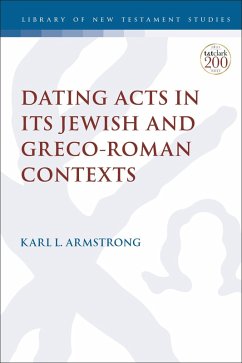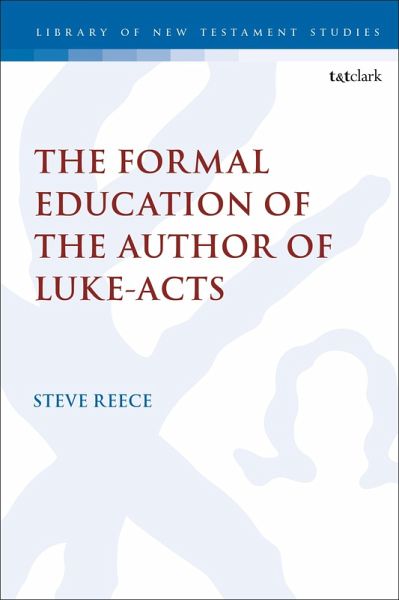
The Formal Education of the Author of Luke-Acts (eBook, ePUB)

PAYBACK Punkte
12 °P sammeln!
Steve Reece proposes that the author of Luke-Acts was trained as a youth in the primary and secondary Greek educational curriculum typical of the Eastern Mediterranean during the Roman Imperial period, where he gained familiarity with the Classical and Hellenistic authors whose works were the focus of study. He makes a case for Luke's knowledge of these authors internally by spotlighting the density of allusions to them in the narrative of Luke-Acts, and externally by illustrating from contemporary literary, papyrological, and artistic evidence that the works of these authors were indeed widel...
Steve Reece proposes that the author of Luke-Acts was trained as a youth in the primary and secondary Greek educational curriculum typical of the Eastern Mediterranean during the Roman Imperial period, where he gained familiarity with the Classical and Hellenistic authors whose works were the focus of study. He makes a case for Luke's knowledge of these authors internally by spotlighting the density of allusions to them in the narrative of Luke-Acts, and externally by illustrating from contemporary literary, papyrological, and artistic evidence that the works of these authors were indeed widely known in the Eastern Mediterranean at the time of the composition of Luke-Acts, not only in the schools but also among the general public. Reece begins with a thorough examination of the Greek educational system during the Hellenistic and Roman Imperial periods, emphasizing that the educational curriculum was very homogeneous, at least at the primary and secondary levels, and that children growing up anywhere in the Eastern Mediterranean could expect to receive quite similar educations. His close examination of the Greek text of Luke-Acts has turned up echoes, allusions, and quotations of several of the very authors that were most prominently featured in the school curriculum: Homer, Aesop, Euripides, Plato, and Aratus. This reinforces the view that Luke, along with other writers of the New Testament, lived in a cultural milieu that was influenced by Classical and Hellenistic Greek literature and that he was not averse to invoking that literature when it served his theological and literary purposes.





